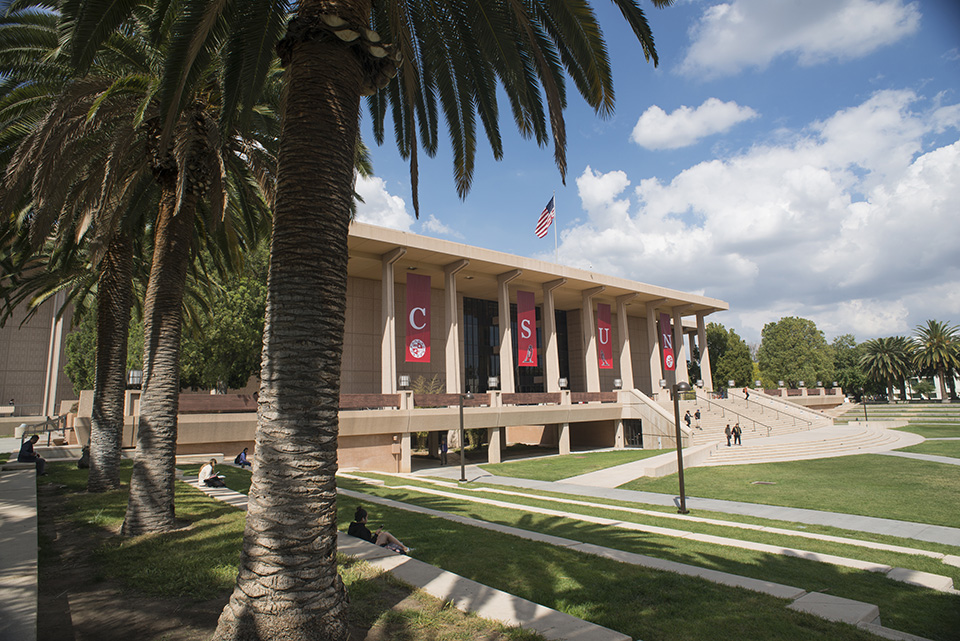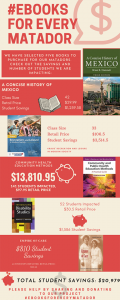CSUN Library Joins Open Education Network, Making Materials More Affordable During Pandemic

The CSUN Library. Photo by Lee Choo.
In its continued efforts to reduce the cost of textbooks for students, the CSUN Library recently joined the Open Education Network, a community of higher education institutions that promote access, affordability and student success through the use of open textbooks.
By partnering with the network, faculty can access the Open Textbook Library, a comprehensive resource for openly licensed academic textbooks. They can also access specialized training sessions on the use of Open Educational Resources — materials for teaching or learning that are available in the public domain or have been released under a license that allows them to be freely used, changed or shared with others.
CSUN has long worked to helped students find ways to save money on textbooks and curricular materials. The eText initiative was launched in 2013 to aid faculty in authoring their own course materials and creating Open Educational Resources The university’s textbook rental program recently expanded to include the rental of digital textbooks, saving students roughly 50%. And for the last several years, the CSUN Library has received funds from the Campus Quality Fee (CQF) to purchase reserve textbooks for classes with high textbook costs and large enrollment. However, according to CSUN librarian Yi Ding, there are more challenges to overcome, especially during this uncertain time.
“During COVID-19, students need more access than ever to textbooks, given that physical library buildings are closed and they are faced with all other financial and personal challenges in life,” said Ding, a coordinator for Affordable Learning $olutions.
AL$ is an initiative launched by the CSU Chancellor’s office to educate and assist faculty with finding quality low- or no-cost course materials, and supporting them as they redesign their courses. Since 2016, AL$ has saved CSUN students over $1 million in textbook costs.

Photo courtesy of CSUN Affordable Learning $olutions.
During the pandemic, Ding and her colleagues have been working to identify and purchase electronic textbooks with unlimited access as well as to scan portions of textbooks under Fair Use for faculty to link to in their course Canvas. They also recently concluded an “eBooks for Every Matador” crowdfunding campaign, allowing the university to purchase 11 eBooks with unlimited access for 576 enrolled students – a total savings of $46,907.57 for CSUN students.
“Students who struggled with accessing course materials and relied on the Library’s CQF-purchased print textbooks before the pandemic could access ebooks through the library,” said Ding. “However, many major publishers refuse to sell eTextbooks to libraries so it’s critical that faculty consider adopting more affordable course materials. This partnership with the Open Textbook Library will give faculty more resources to help support our students.”
The CSUN Library serves the needs of 38,000 students. For more information on the its virtual services, visit the library’s online resources and services page.

 experience
experience